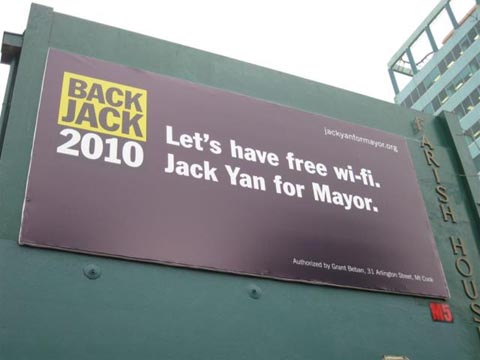 Rick Klau’s action today in restoring Vincent’s Social Media Consortium blog got me putting things into perspective.
Rick Klau’s action today in restoring Vincent’s Social Media Consortium blog got me putting things into perspective.
We know sites like Blogger and Vox are free, but what happens when they fail?
Vox, the Six Apart blogging service, had been where I had put my personal posts—as well as a bunch of private ones inaccessible to the general public—for three years. I built up good friendships there, before social networking became everyday.
Yet when that service failed, I went from Vox evangelist to someone who became acutely aware of the site’s failings. Those who dissed Vox months before I did, and whose complaints I thought little of, suddenly seemed to be visionaries.
I don’t think things were handled brilliantly. While I was still there and keeping up my rate of complaints about their service being dodgy, I got replies. The minute I left, that was it.
‘Phew, we don’t have to talk to that nut again.’
All the claims about wanting to get to the bottom of the problem suddenly seemed insincere. And it’s worth noting that the bug I experienced—where a compose screen would take between 15 minutes and 48 hours to load—is still present.
They had lost quite a few users, as I had noted, and it’s obviously something deep within their code.
The damage had been done.
Meanwhile, Google hasn’t exactly helped, either. While Vox had me pursuing its problems for six weeks, Google was damaging its brand for six months.
When Vincent’s blog was first blocked in July, the company promised two-day reviews. These promises were all broken. I’m sure Vincent and I, and many other bloggers who contributed to the Social Media Consortium, would have loved to have known why. As it turned out, the blog’s reviewers agreed with the computer’s decision to render the blog inaccessible, and then to delete it altogether.
By the time I got to the Google support forums to argue the case in November, there were more broken promises—as well as downright obstruction by someone who probably gets his kicks from it.
It got me wondering: people who do things in Google’s name aren’t very intelligent, if they can’t grasp some of the basics of their role.
They were also not particularly courteous or understanding.
As the frustration grew, things in my world got un-Googled. My Firefox default search engines became Cuil or Bing. I shifted my blogs away, including this one, or simply stopped blogging at Blogger. (The Medinge Group’s press room went to Wordpress late last year.) While once upon a time I would recommend Vox, Blogger and Wordpress to people depending on their blogging needs, I would only now say, ‘Wordpress’.
I never was sold on Gmail—and I notice friends are beginning to have problems with that service, including being locked out. People using Gmail to commit fraud and use Lucire’s name were allowed to continue to do so, even after we reported them. Even before this incident, but within the same calendar year, I discovered that Adsense was a load of rubbish.
All this began making me think: Google has jumped the shark.
If someone like Google’s Rick Klau—who, if you read his blog, is an incredibly intelligent guy, not to mention an incredibly courteous one—had known of our case earlier, I’m sure we wouldn’t have allowed the Google brand to become so tarnished in our minds.
Rick fixed things in 24 hours and saved the day as far as the Social Media Consortium was concerned. He’s also given himself a lot of good karma—I’ve seen other blogs he’s gone and restored in the last few days. But it’s a couple of days of Google goodness versus six months of its own brand-wrecking, through either bad service done in its name, bad products, or not having much of a human touch.
Given that I was one of the first people to use Google in the late 1990s, and abandon AltaVista, Infoseek and the others in its favour, it’s a disappointing end to the 2000s.
The trust I once might have had for Google has evaporated into the ether. It would be stupid to say that I would never use the company’s services again—you can hardly avoid it—but I’ll be thinking twice about anything new that it introduces.
The internet leadership vacuum is becoming a reality, because I don’t see Facebook or Twitter dominating (especially not the former, with its questionable practices). And that means a new company can fill the void in the 2010s. It could even be a New Zealand one—or, better still, a Wellington one.
There’s enough world-class thinking here which can be used as a base. And, if elected this year as Wellington’s mayor, I’d like to build on that and see if we can create an online world-beater.
I know of a couple of Kiwi ventures already that have world-beating capabilities, currently seeking capital. The “next Google” might be among them, if we can make sure that they can grow the way they should.







Jack, I left you a reply at your last Lucire entry on VOX, but I’ll repeat things here if it is convenient for you.
http://techswrite.wordpress.com/2010/01/06/blogger-googles-weakest-link/
I still very much believe in Google, but then I have a VERY strong bias towards their contributions to the Linux community. Still, I was sad to read the glassdoor.com article, as it echoed a betanews article (http://www.betanews.com/joewilcox/article/20002009-Microsofts-decade-of-shattered-dreams/1262204767) I read. So apparently, the MBA infestation has reached Google, too. It’s not that management systems are inherently bad– one fansite response to the incident described in my Runescape reference was that Jagex needed a management overhaul. Techs should not be doing something that’s clearly out of their league. But I guess it’s something that can be laid on too thick (especially when managing the internet is like herding LOLcats, as ex-NASA scientist and xkcd creator Randall Munroe suggests).
The balance should be kept. No jumping the shark, indeed.
Jak, I haven’t received a reply over at Vox beyond our dialogue yesterday. As far as I know, the blog isn’t set to moderate. But I am glad you’ve left one here.
Thank you for the write-up. I’ve entered a comment there, too.
Somehow I knew things were changing at Google for the worse. The first sign was in the mid-2000s when the company, which did a cheeky presentation to the stock market suits one year, went all conventional the next. The MBAs got there first. Over time they were bound to infest the rest of the place with tunnel vision.
Some good things are still being done, but I think it will follow a Yahoo! path and become less vibrant. The culture is stronger than Yahoo!’s to begin with, so the decline will take longer. It has also diversified into more areas.
I don’t want to give a date by when Google will seem like Altavista is today, but I believe Facebook has peaked.
I still use Google infrastructure and platform services, but don’t use them for anything that requires a user-interface. I also prefer to use what I see as fit for purpose solutions for specific needs, especially solutions that play nicely with each other (e.g. open standards, service-oriented, etc). A lot of what Google offers doesn’t measure up fro my perspective, and I believe they have fallen prey to the temptation to be all things to all people.
Quite aside from my passion for NZ business and people, I also believe that we very much need to have a local provider for cloud computing and other services – which is why I have been working with ASPX on their upcoming launch. Check them out at http://www.aspx.co.nz/.
I think that’s the way to do it, Eli. Google does some things well, and that’s what we should use it for. I rather like Google News, so I use it as one of my first ports of call in daily surfing. But other services are lacking.
I don’t think we can accept Google as a best-of-category brand any more, which is where it was around the time of Google News. It seemed it could do no wrong. But from mid-decade on, I noticed that it was more old-school “corporate”, and the former employee link I had above is an indication of the MBAs running the place.
ASPX shows a great deal of promise.
Google, hey there just a company doing what THEY think people want and no-one should really believe they (or any coming after) are some sort of silver bullet.
Some people live and die by Google Reader (me) and some hate it with a passion and will be the last person using Bloglines.
Some think Google Sites are the epitome of shite and others can’t believe it’s taken so long for a company to offer such easy “intranets”.
A lot of people exist in Microsoft Outlook while others look on/down bemused from their web based GMail interface.
Choice is what we need.
Choice is what interface we use (Outlook, web, iPhone, Android or Noika txt’ing) – isn’t that already here?
Choice in where it’s stored … ah, there you’ve got me … where’s the (easy) choice? And from where I sit at least Google are trying even if it’s veneer to a large extent. Oh, it’s not about making a choice once, right at the beginning (lock-in) but ability to shift from ASPX to Google to Microsoft to whoever and whenever we want.
True, Mike. One just wishes these guys were a bit more ethical and honest about it. I would prefer five honest choices to four honest and one dodgy choice.
Strange you should mention Google Reader. I never signed up for it, and there it is, in my account, complete with 11 blogs that I never asked it to add (they came via the Follow feature on some blogs). Web History was turned on when I had turned it off ages ago. Five photos of me that I never added to my Picasa account are—you guessed it, in my Picasa account (not any more, mind).
I’ll always complain if there are less than honest behaviours from these tech companies.
You did ask them to be added to Google Reader then, that’s what follow does, as it says …
Web History, hmmm, not good.
5 photos, from Blogger? That’s where they are stored … again, as it says.
Keep up the complaining but be aware that “unexpected behaviour” isn’t necessarily always the tech companies issue, it could be a problem before the keyboard. Of course, once you know you can then always agitate for change which you’re getting into big time Mr Mayor :-)
Mike, it was still a surprise. I was quite happy to have them on my Blogger Dashboard page. The photos are also from the Blogger account. The point is that if I never signed up for Google Reader, then the follow should be restricted to Blogger only.
Pretty sure that at the time I set up Blogger, Picasa did not exist as a Google entity (if it did, then it was not integrated). Also, too, since I only signed up to Picasa last year, I didn’t expect to have had an account opened for me possibly years prior.
At least you know I’ll always give you the full story rather than say, ‘But I never did any of that and they took my photos!’
Yep, the Web History thing was a bit more disturbing. I figured out the other two, but how I got back on Web History when I specifically opted out of it (on the day of its announcement, in fact) is a mystery.